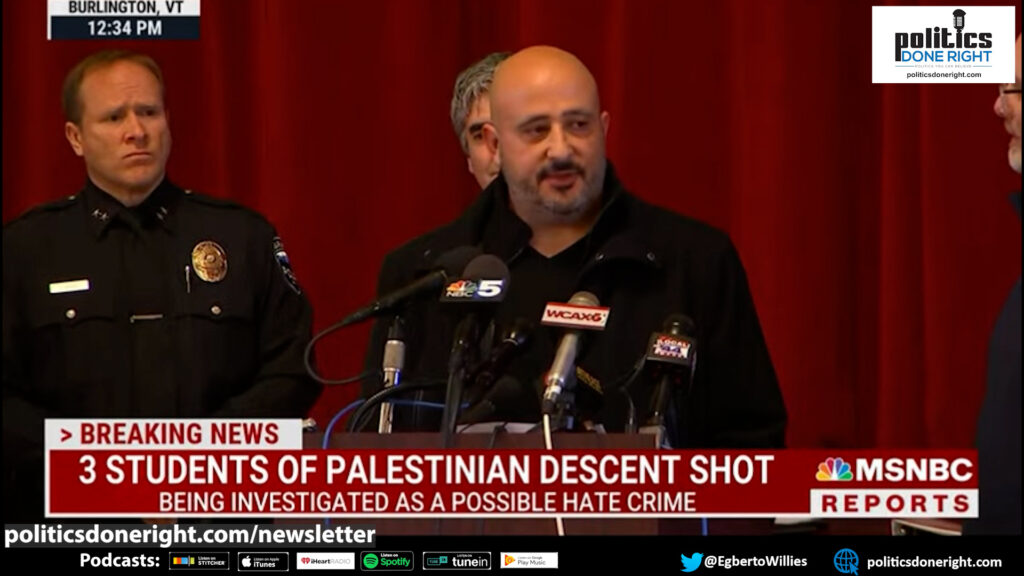A West Bank family sent their kid to America, believing it was safer. A hate-filled gun touting Vermont resident did more harm with a gun than back in the Middle East.
A family finds out that America may be just as violent.
Podcasts (Video — Audio)
There is a deeply ingrained myth of the United States as a sanctuary of safety and prosperity, particularly when juxtaposed against regions mired in long-standing conflicts like Gaza or the West Bank. This narrative serves as a microcosm of a larger societal dilemma, encompassing themes of gun violence, cultural hatred, societal disillusionment, and the role of political and economic systems in shaping public safety and perception.
This story of the family from the West Bank, who sent their sons for refuge in the U.S. only to face a violent attack, challenges the perception of the U.S. as an inherently safer environment. This reflects a broader global narrative wherein the U.S., often seen as a bastion of freedom and safety, is being reevaluated in the face of escalating gun violence. The ease of access to firearms, especially in states with lenient gun laws, is a critical factor here. This incident is not isolated but indicative of a larger epidemic of gun violence plaguing America, a stark contrast to its perceived image as a safe haven.
The impact of such violence extends beyond the immediate physical harm. The community’s response, marked by solidarity and support, highlights a resilience and communal strength often overshadowed in discussions about gun violence. The appreciation for the medical staff’s efforts and the community’s rallying around the victims underscore a sense of collective responsibility and empathy. However, this is overshadowed by a profound sense of betrayal and shock experienced by the family, who believed that sending their kid to the U.S. would ensure safety and a better future. The reality of this hateful man shooting three young men of Palestinian descent shatters this belief, exposing the vulnerabilities within what is often considered a secure environment.
The incident also serves as a platform for broader societal commentary. It was easy to draw connections between local incidents of violence and global issues like the Israeli-Palestinian conflict. This narrative challenges the audience to consider how political rhetoric, especially from right-wing factions, and the influence of corporate entities in sectors like healthcare and defense shape public perception and policy. It implies that these factors contribute to a culture of violence and societal division, far removed from the ideals of safety and community the U.S. purportedly represents.
We need a holistic understanding of these complex, interrelated issues. We must move beyond mere awareness to active participation in shaping a progressive narrative. This involves questioning long-held beliefs about safety, security, and prosperity in the U.S. and recognizing the role of economic and political interests in perpetuating certain harmful dynamics.
The shooting of the three young men is a somber reminder of the multifaceted challenges facing American society. It underscores the need for critical examination of the narratives we hold about safety, hate, community, and national identity. The story of this family from the West Bank, seeking safety for their kid but finding violence, is a poignant commentary on the current state of American society, challenging us to reflect on our values, policies, and the realities we create and perpetuate.
Viewers are encouraged to subscribe and join the conversation for more insightful commentary and to support progressive messages. Together, we can populate the internet with progressive messages that represent the true aspirations of most Americans.

